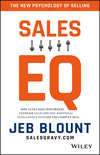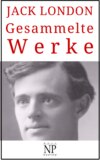Kitabı oku: «The Corrections», sayfa 10
“It was a nasty little joke,” Gitanas said from the corner of the taxicab into which he’d wedged himself. “But who laughed? Nobody laughed. They just sent money. I gave an address and the cashier checks started coming in. E-mail queries by the hundred. What products would Lithuania Inc. make? Who were the officers in the Free Market Party Company and did they have a strong track record as managers? Did I have records of past earnings? Could the investor alternatively have a Lithuanian street or village named after his children or his children’s favorite Pokémon character? Everybody wanted more information. Everybody wanted brochures. And prospectuses! And stock certificates! And brokerage information! And are we listed on such and such exchange and so forth? People want to come and visit! And nobody is laughing.”
Chip was tapping on the window with a knuckle and checking out the women on Sixth Avenue. The rain was letting up, umbrellas coming down. “Are the proceeds going to you or to the Party?”
“OK, so my philosophy about that is in transition,” Gitanas said. From his briefcase he took a bottle of akvavit from which he’d already poured deal-sealing shots in Eden’s office. He rolled sideways and handed it to Chip, who took a healthy pull and gave it back.
“You were an English teacher,” Gitanas said.
“I taught college, yeah.”
“And where your people from? Scandinavia?”
“My dad’s Scandinavian,” Chip said. “My mom’s sort of mongrel Eastern European.”
“People in Vilnius will look at you and think you’re one of us.”
Chip was in a hurry to get to his apartment before his parents left. Now that he had cash in his pocket, a roll of thirty hundreds, he didn’t care so much what his parents thought of him. In fact, he seemed to recall that a few hours earlier he’d seen his father trembling and pleading in a doorway. As he drank the akvavit and checked out the women on the sidewalk, he could no longer fathom why the old man had seemed like such a killer.
It was true that Alfred believed the only thing wrong with the death penalty was that it wasn’t used often enough; true as well that the men whose gassing or electrocution he’d called for, over dinner in Chip’s childhood, were usually black men from the slums on St. Jude’s north side. (“Oh, Al,” Enid would say, because dinner was “the family meal,” and she couldn’t understand why they had to spend it talking about gas chambers and slaughter in the streets.) And one Sunday morning, after he’d stood at a window counting squirrels and assessing the damage to his oak trees and zoysia the way white men in marginal neighborhoods took stock of how many houses had been lost to “the blacks,” Alfred had performed an experiment in genocide. Incensed that the squirrels in his not-large front yard lacked the discipline to stop reproducing or pick up after themselves, he went to the basement and found a rat trap over which Enid, as he came upstairs with it, shook her head and made small negative noises. “Nineteen of them!” Alfred said. “Nineteen of them!” Emotional appeals were no match for the discipline of such an exact and scientific figure. He baited the trap with a piece of the same whole wheat bread that Chip had eaten, toasted, for breakfast. Then all five Lamberts went to church, and between the Gloria Patri and the Doxology a young male squirrel, engaging in the high-risk behavior of the economically desperate, helped itself to the bread and had its skull crushed. The family came home to find green flies feasting on the blood and brain matter and chewed whole-wheat bread that had erupted through the young squirrel’s shattered jaws. Alfred’s own mouth and chin were sewn up in the distaste that special exertions of discipline—the spanking of a child, the eating of rutabaga—always caused him. (He was quite unconscious of this distaste he betrayed for discipline.) He fetched a shovel from the garage and loaded both the trap and the squirrel corpse into the paper grocery bag that Enid had half filled with pulled crabgrass the day before. Chip was following all this from about twenty steps behind him, and so he saw how, when Alfred entered the basement from the garage, his legs buckled a little, sideways, and he pitched into the washing machine, and then he ran past the Ping-Pong table (it had always scared Chip to see his father run, he seemed too old for it, too disciplined) and disappeared into the basement bathroom; and henceforth the squirrels did whatever they wanted.
The cab was approaching University Place. Chip considered returning to the Cedar Tavern and reimbursing the bartender, maybe giving her an even hundred to make everything OK, maybe getting her name and address and writing to her from Lithuania. He was leaning forward to direct the driver to the Tavern when a radical new thought arrested him: I stole nine bucks, that’s what I did, that’s who I am, tough luck for her.
He sat back and extended his hand for the bottle.
Outside his building the cabby waved away his hundred—too big, too big. Gitanas dug something smaller out of his red motocross jacket.
“Why don’t I meet you at your hotel?” Chip said.
Gitanas was amused. “You’re joking, right? I mean, I trust you a lot. But maybe I’ll wait down here. Pack your bag, take your time. Bring a warm coat and hat. Suits and ties. Think financial.”
The doorman Zoroaster was nowhere to be seen. Chip had to use his key to get inside. On the elevator he took deep breaths to quell his excitement. He didn’t feel afraid, he felt generous, he felt ready to embrace his father.
But his apartment was empty. His family must have left minutes earlier. Body warmth was hanging in the air, faint smells of Enid’s White Shoulders perfume, and something bathroomy, something old-persony. The kitchen was cleaner than Chip had ever seen it. In the living room all the scrubbing and stowing he’d done was visible now as it hadn’t been the night before. And his bookshelves were denuded. And Julia had taken her shampoos and dryer from the bathroom. And he was drunker than he’d realized. And nobody had left a note for him. There was nothing on the dining table except a slice of tart and a vase of sunflowers. He had to pack his bags, but everything around him and inside him had become so strange that for a moment he could only stand and look. The leaves of the sunflowers had black spots and were rimmed with pale senescences; the heads were meaty and splendid, heavy as brownies, thick as palms. In the center of a sunflower’s Kansan face was a subtly pale button within a subtly darker areola. Nature, Chip thought, could hardly have devised a more inviting bed for a small winged insect to tumble into. He touched the brown velvet, and ecstasy washed over him.
The taxi containing three Lamberts arrived at a midtown pier where a white high-rise of a cruise ship, the Gunnar Myrdal, was blotting out the river and New Jersey and half the sky. A crowd mostly of old people had converged on the gate and reattenuated in the long, bright corridor beyond it. There was something netherworldly in their determined migration, something chilling in the cordiality and white raiment of the Nordic Pleasurelines shore personnel, the rain clouds breaking up too late to save the day—the hush of it all. A throng and twilight by the Styx.
Denise paid the cab fare and got the luggage into the hands of handlers.
“So, now, where do you go from here?” Enid asked her.
“Back to work in Philly.”
“You look darling,” Enid said spontaneously. “I love your hair that length.”
Alfred seized Denise’s hands and thanked her.
“I just wish it had been a better day for Chip,” Denise said.
“Talk to Gary about Christmas,” Enid said. “And do think about coming for a whole week.”
Denise raised a leather cuff and checked the time. “I’ll come for five days. I don’t think Gary will do it, though. And who knows what’s up with Chip.”
“Denise,” Alfred said impatiently, as if she were speaking nonsense, “please talk to Gary.”
“OK, I will. I will.”
Alfred’s hands bounced in the air. “I don’t know how much time I have! You and your mother need to get along. You and Gary need to get along.”
“Al, you have plenty of—”
“We all need to get along!”
Denise had never been a crier, but her face was crumpling up. “Dad, all right,” she said. “I’ll talk to him.”
“Your mother wants a Christmas in St. Jude.”
“I’ll talk to him. I promise.”
“Well.” He turned abruptly. “That’s enough of that.”
His black raincoat was flapping and whipping in the wind, and still Enid managed to hope that the weather would be perfect for cruising, that the water would be calm.
In dry clothes, with a coat bag and a duffel and cigarettes—smooth lethal Murattis, five bucks a box—Chip rode out to Kennedy with Gitanas Misevi ius? and boarded the Helsinki flight on which, in violation of his oral contract, Gitanas had bought coach-class, not business-class, tickets. “We can drink tonight, sleep tomorrow,” he said.
ius? and boarded the Helsinki flight on which, in violation of his oral contract, Gitanas had bought coach-class, not business-class, tickets. “We can drink tonight, sleep tomorrow,” he said.
Their seats were aisle and window. As Chip sat down, he recalled how Julia had ditched Gitanas. He imagined her walking quickly off the plane and then sprinting down the concourse and throwing herself into the back seat of a good old yellow cab. He felt a spasm of homesickness—terror of the other; love of the familiar—but, unlike Julia, he had no desire to bolt. He’d no sooner buckled his seat belt than he fell asleep. He awoke briefly during takeoff and went under again until the entire population of the plane, as one, lit cigarettes.
Gitanas took a computer from its case and booted up. “So Julia,” he said.
For an alarmed, sleep-clouded moment Chip thought that Gitanas was addressing him as Julia.
“My wife?” Gitanas said.
“Oh. Sure.”
“Yeah, she’s on antidepressants. This was Eden’s idea, I think. Eden kind of runs her life now, I think. You could see she didn’t want me in her office today. Didn’t want me in town! I’m inconvenient now. So, but, OK, so Julia started taking the drug, and suddenly she woke up and she didn’t want to be with men with cigarette burns anymore. That’s what she says. Enough men with cigarette burns. Time to move on. No more men with burns.” Gitanas loaded a CD into the computer’s CD drive. “She wants the flat, though. At least the divorce lawyer wants her to want it. The divorce lawyer that Eden’s paying for. Somebody changed the locks on the flat, I had to pay the super to let me in.”
Chip closed his left hand. “Cigarette burns?”
“Yeah. Oh, yeah, I got a few.” Gitanas craned his neck to see if any neighbors were listening, but all the passengers around them, except for two children with their eyes shut tight, were busy smoking. “Soviet military prison,” he said. “I’ll show you my memento of a pleasant stay there.” He peeled his red leather jacket off one arm and rolled up the sleeve of the yellow T-shirt he was wearing underneath. A poxy interlocking constellation of scar tissue extended from his armpit down the inside of his arm to his elbow. “This was my 1990,” he said. “Eight months in a Red Army barracks in the sovereign state of Lithuania.”
“You were a dissident,” Chip said.
“Yeah! Yeah! Dissident!” He worked his arm back into its sleeve. “It was horrible, great. Very tiring, but it didn’t feel tiring. The tiredness came later.”
Chip’s memories of 1990 were of Tudor dramas, interminable futile fights with Tori Timmelman, a secret unhealthy involvement with certain texts of Tori’s that illustrated the dehumanizing objectifications of pornography, and little else.
“So, I’m kind of scared to look at this,” Gitanas said. On his computer screen was a dusky monochrome image of a bed, viewed from above, with a body beneath the blankets. “The super says she’s got a boyfriend, and I retrieved some data. I had my surveillance in there from the previous owner. Motion detector, infrared, digital stills. You can look if you want. Might be interesting. Might be hot.”
Chip remembered the smoke detector on the ceiling of Julia’s bedroom. Often enough he’d stared up at it until the corners of his mouth were dry and his eyes had rolled back in his head. It had always seemed to him a strangely complicated smoke detector.
He sat up straighter in his seat. “Maybe you don’t want to look at those.”
Gitanas pointed and clicked intricately. “I’ll angle the screen. You don’t have to look.”
Thunderheads of tobacco smoke were gathering in the aisles. Chip decided that he needed to light a Muratti; but the difference between taking a drag and taking a breath proved negligible.
“What I mean,” he said, blocking the computer screen with his hand, “is maybe you want to eject the CD and not look at it.”
Gitanas was genuinely startled. “Why don’t I want to look at it?”
“Well, let’s think about why.”
“Maybe you should tell me.”
“No, well, let’s just think about it.”
For a moment the atmosphere was furiously cheerful. Gitanas considered Chip’s shoulder, his knees, and his wrist, as though deciding where to bite him. Then he ejected the CD and thrust it in Chip’s face. “Fuck you!”
“I know, I know.”
“Take it. Fuck you. I don’t want to see it again. Take it.”
Chip put the CD in his shirt pocket. He felt pretty good. He felt all right. The plane had leveled off in altitude and the noise had the steady vague white burning of dry sinuses, the color of scuffed plastic airliner windows, the taste of cold pale coffee in reusable tray-table cups. The North Atlantic night was dark and lonely, but here, on the plane, were lights in the sky. Here was sociability. It was good to be awake and to feel awakeness all around him.
“So, what, you got cigarette burns, too?” Gitanas said.
Chip showed his palm. “It’s nothing.”
“Self-inflicted. You pathetic American.”
“Different kind of prison,” Chip said.
THE MORE HE THOUGHT ABOUT IT, THE ANGRIER HE GOT
GARY LAMBERT’S profitable entanglement with the Axon Corporation had begun three weeks earlier, on a Sunday afternoon that he’d spent in his new color darkroom, trying to enjoy reprinting two old photographs of his parents and, by enjoying it, to reassure himself about his mental health.
Gary had been worrying a lot about his mental health, but on that particular afternoon, as he left his big schist-sheathed house on Seminole Street and crossed his big back yard and climbed the outside stairs of his big garage, the weather in his brain was as warm and bright as the weather in northwest Philadelphia. A September sun was shining through a mix of haze and smallish, gray-keeled clouds, and to the extent that Gary was able to understand and track his neurochemistry (and he was a vice president at CenTrust Bank, not a shrink, let’s remember) his leading indicators all seemed rather healthy.
Although in general Gary applauded the modern trend toward individual self-management of retirement funds and long-distance calling plans and private-schooling options, he was less than thrilled to be given responsibility for his own personal brain chemistry, especially when certain people in his life, notably his father, refused to take any such responsibility. But Gary was nothing if not conscientious. As he entered the darkroom, he estimated that his levels of Neurofactor 3 (i.e., serotonin: a very, very important factor) were posting seven-day or even thirty-day highs, that his Factor 2 and Factor 7 levels were likewise outperforming expectations, and that his Factor 1 had rebounded from an early-morning slump related to the glass of Armagnac he’d drunk at bedtime. He had a spring in his step, an agreeable awareness of his above-average height and his late-summer suntan. His resentment of his wife, Caroline, was moderate and well contained. Declines led advances in key indices of paranoia (e.g., his persistent suspicion that Caroline and his two older sons were mocking him), and his seasonally adjusted assessment of life’s futility and brevity was consistent with the overall robustness of his mental economy. He was not the least bit clinically depressed.
He drew the velvet blackout curtains and shut the lightproof shutters, took a box of 8×10 paper from the big stainless refrigerator, and fed two strips of celluloid to the motorized negative cleaner—a sexily heavy little gadget.
He was printing images from his parents’ ill-fated Decade of Connubial Golf. One showed Enid bending over in deep rough, scowling in her sunglasses in the obliterative heartland heat, her left hand squeezing the neck of her long-suffering five-wood, her right arm blurred in the act of underhandedly throwing her ball (a white smear at the image’s margin) into the fairway. (She and Alfred had only ever played on flat, straight, short, cheap public courses.) In the other photo Alfred was wearing tight shorts and a billed Midland Pacific cap, black socks and prehistoric golf shoes, and was addressing a white grapefruit-sized tee marker with his prehistoric wooden driver and grinning at the camera as if to say, A ball this big I could hit!
After Gary had given the enlargements their sour baths, he raised the lights and discovered that both prints were webbed over with peculiar yellow blotches.
He cursed a little, not so much because he cared about the photographs as because he wanted to preserve his good spirits, his serotonin-rich mood, and to do this he needed a modicum of cooperation from the world of objects.
Outside, the weather was curdling. There was a trickle in the gutters, a rooftop percussion of drops from overhanging trees. Through the walls of the garage, while he shot a second pair of enlargements, Gary could hear Caroline and the boys playing soccer in the back yard. He heard footfalls and punting sounds, less frequent shouts, the seismic whump of ball colliding with garage.
When the second set of prints emerged from the fixer with the same yellow blotches, Gary knew he ought to quit. But there came a tapping on the outside door, and his youngest son, Jonah, slipped through the blackout curtain.
“Are you printing pictures?” Jonah said.
Gary hastily folded the failed prints into quarters and buried them in the trash. “Just starting,” he said.
He remixed his solutions and opened a fresh box of paper. Jonah sat down by a safe light and whispered as he turned the pages of one of the Narnia books, Prince Caspian, that Gary’s sister, Denise, had given him. Jonah was in second grade but was already reading at a fifth-grade level. Often he spoke aloud the written words in an articulate whisper that was of a piece with his general Narnian dearness as a person. He had shining dark eyes and an oboe voice and mink-soft hair and could seem, even to Gary, more sentient animal than little boy.
Caroline did not entirely approve of Narnia—C. S. Lewis was a known Catholic propagandist, and the Narnian hero, Aslan, was a furry, four-pawed Christ figure—but Gary had enjoyed reading The Lion, the Witch and the Wardrobe as a boy, and he had not, it was safe to say, grown up to be a religious nut. (In fact he was a strict materialist.)
“So they kill a bear,” Jonah reported, “but it’s not a talking bear, and Aslan comes back, but only Lucy sees him and the others don’t believe her.”
Gary tweezed the prints into the stop bath. “Why don’t they believe her?”
“Because she’s the youngest,” Jonah said.
Outside, in the rain, Caroline laughed and shouted. She had a habit of running herself ragged to keep up with the boys. In the early years of their marriage she’d worked full-time as a lawyer, but after Caleb was born she’d come into family money and now she worked half days only, at a philanthropically low salary, for the Children’s Defense Fund. Her real life centered on the boys. She called them her best friends.
Six months ago, on the eve of Gary’s forty-third birthday, while he and Jonah were visiting his parents in St. Jude, a pair of local contractors had come and rewired, replumbed, and re-outfitted the second floor of the garage as a surprise birthday gift from Caroline. Gary had occasionally spoken of reprinting his favorite old family photos and collecting them in a leather-bound album, an All-Time Lambert Two Hundred. But commercial printing would have sufficed for that, and meanwhile the boys were teaching him computer pixel-processing, and if he’d still needed a lab he could have rented one by the hour. His impulse on his birthday, therefore—after Caroline had led him out to the garage and presented him with a darkroom that he didn’t need or want—was to weep. From certain pop-psychology books on Caroline’s nightstand, however, he’d learned to recognize the Warning Signs of clinical depression, and one of these Warning Signs, the authorities all agreed, was a proclivity to inappropriate weeping, and so he’d swallowed the lump in his throat and bounded around the expensive new darkroom and exclaimed to Caroline (who was experiencing both buyer’s remorse and gift-giver’s anxiety) that he was utterly delighted with the gift! And then, to reassure himself that he wasn’t clinically depressed and to make sure that Caroline never suspected anything of the kind, he’d resolved to work in the darkroom twice a week until the All-Time Lambert Two Hundred album was complete.
The suspicion that Caroline, consciously or not, had tried to exile him from the house by putting the darkroom in the garage was another key index of paranoia.
When the timer pealed, he transferred the third set of prints to the fixer bath and raised the lights again.
“What are those white blobs?” Jonah said, peering into the tray.
“Jonah, I don’t know!”
“They look like clouds,” Jonah said.
The soccer ball slammed into the side of the garage.
Gary left Enid scowling and Alfred grinning in the fixative and opened shutters. His monkey puzzle tree and the bamboo thicket next to it were glossy with rain. In the middle of the back yard, in soaked soiled jerseys that stuck to their shoulder blades, Caroline and Aaron were gulping air while Caleb tied a shoe. Caroline at forty-five had the legs of a college girl. Her hair was nearly as blond as when Gary had first met her, twenty years earlier, at a Bob Seger concert at the Spectrum. Gary was still substantially attracted to his wife, still excited by her effortless good looks and by her Quaker bloodlines. By ancient reflex, he reached for a camera and trained the zoom telephoto on her.
The look on Caroline’s face dismayed him. There was a pinch in her brow, a groove of distress around her mouth. She was limping as she pursued the ball again.
Gary turned the camera on his oldest son, Aaron, who was best photographed unawares, before he could position his head at the self-conscious angle that he believed most flattered him. Aaron’s face was flushed and mud-flecked in the drizzle, and Gary worked the zoom to frame a handsome shot. But resentment of Caroline was overwhelming his neurochemical defenses.
The soccer had stopped now and she was running and limping toward the house.
Lucy buried her head in his mane to hide from his face, Jonah whispered.
There came a screaming from the house.
Caleb and Aaron reacted instantly, galloping across the yard like action-picture heroes and disappearing inside. A moment later Aaron reemerged and shouted, in his newly crack-prone voice, “Dad! Dad! Dad! Dad!”
The hysteria of others made Gary methodical and calm. He left the darkroom and descended the rain-slick stairway slowly. In the open space above the commuter-rail tracks, behind the garage, a kind of spring-shower self-improvement of the light was working through the humid air.
“Dad, Grandma’s on the phone!”
Gary ambled across the yard, pausing to examine and regret the injuries that the soccer had visited on the grass. The surrounding neighborhood, Chestnut Hill, was not un-Narnian. Century-old maples and ginkgos and sycamores, many of them mutilated to accommodate power lines, grew in giant riot over patched and repatched city streets bearing the names of decimated tribes. Seminole and Cherokee, Navajo and Shawnee. For miles in every direction, despite high population densities and large household incomes, there were no fast roads and few useful stores. The Land That Time Forgot, Gary called it. Most of the houses here, including his own, were made of a schist that resembled raw tin and was exactly the color of his hair.
“Dad!”
“Thank you, Aaron, I heard you the first time.”
“Grandma’s on the phone!”
“I know that, Aaron. You just told me.”
In the slate-floored kitchen he found Caroline slumped in a chair with both hands pressed to her lower back.
“She called this morning,” Caroline said. “I forgot to tell you. The phone’s been ringing every five minutes, and finally I was running—”
“Thank you, Caroline.”
“I was running—”
“Thank you.” Gary snagged the cordless and held it at arm’s length, as if to keep his mother at bay, while he proceeded into the dining room. Here he was waylaid by Caleb, who had a finger buried in the slick leaves of a catalogue. “Dad, can I talk to you for a second?”
“Not now, Caleb, your grandmother is on the phone.”
“I just want—”
“Not now, I said.”
Caleb shook his head and smiled in disbelief, like a much-televised athlete who’d failed to draw a penalty.
Gary crossed the marble-floored main hall into his very large living room and said hello into the little phone.
“I told Caroline,” Enid said, “that I would call you back if you weren’t near the phone.”
“Your calls cost seven cents a minute,” Gary said.
“Or you could have called me back.”
“Mother, we’re talking about twenty-five cents.”
“I’ve been trying to reach you all day,” she said. “The travel agent needs an answer by tomorrow morning at the latest. And, you know, we’re still hoping you’ll come for one last Christmas, like I promised Jonah, so—”
“Hang on a second,” Gary said. “I’ll check with Caroline.”
“Gary, you’ve had months to discuss this. I’m not going to sit here and wait while you—”
“One second.”
He blocked the perforations in the phone’s mouthpiece with his thumb and returned to the kitchen, where Jonah was standing on a chair with a package of Oreos. Caroline, still slumped at the table, was breathing shallowly. “I did something terrible,” she said, “when I ran to catch the phone.”
“You were out there slipping around in the rain for two hours,” Gary said.
“No, I was fine until I ran to get the phone.”
“Caroline, I saw you limping before you—”
“I was fine,” she said, “until I ran to get the phone, which was ringing for the fiftieth time—”
“Good, all right,” Gary said, “it’s my mother’s fault. Now tell me what you want me to say about Christmas.”
“Well, whatever. They’re welcome to come here.”
“We’d talked about the possibility of going there.”
Caroline shook her head thoroughly, as if erasing something. “No. You talked about it. I never talked about it.”
“Caroline—”
“I can’t discuss this when she’s on the phone. Have her call back next week.”
Jonah was realizing that he could take as many cookies as he wanted and neither parent would notice.
“She needs to make arrangements now,” Gary said. “They’re trying to decide if they should stop here next month, after their cruise. It depends on Christmas.”
“It’s like I slipped a disk.”
“If you won’t talk about it,” he said, “I’ll tell her we’re considering coming to St. Jude.”
“No way! That was not the agreement.”
“I’m proposing a one-time exception to the agreement.”
“No! No!” Wet tangles of blond hair lashed and twisted as Caroline registered refusal. “You can’t change the rules like that.”
“A one-time exception isn’t changing the rules.”
“God, I think I need an X-ray,” Caroline said.
Gary could feel the buzzing of his mother’s voice against his thumb. “A yes or a no here?”
Standing up, Caroline leaned into him and buried her face in his sweater. She knocked lightly on his sternum with a little fist. “Please,” she said, nuzzling his collarbone. “Tell her you’ll call her later. Please? I really hurt my back.”
Gary held the phone out to one side, his arm rigid, as she pressed against him. “Caroline. They’ve come here eight years in a row. It’s not extreme of me to propose a one-time exception. Can I at least say we’re considering the possibility?”
Caroline shook her head woefully and sank onto the chair.
“OK, fine,” Gary said. “I’ll make my own decision.”
He strode into the dining room, where Aaron, who’d been listening, stared at him as if he were a monster of spousal cruelty.
“Dad,” Caleb said, “if you’re not talking to Grandma, can I ask you something?”
“No, Caleb, I’m talking to Grandma.”
“Then can I talk to you right afterward?”
“Oh, God, oh, God,” Caroline was saying.
In the living room Jonah had settled onto the larger leather sofa with his tower of cookies and Prince Caspian.
“Mother?”
“I don’t understand this,” Enid said. “If it’s not a good time to talk, all right, call me back, but to make me wait ten minutes—”
“Yes, but here I am.”
“Well, so, and what have you decided?”
Before Gary could answer, there burst from the kitchen a piteous raw feline wailing, a cry such as Caroline had produced during intercourse fifteen years ago, before there were boys to hear her.
“Mom, sorry, one second.”
“This is not right,” Enid said. “This is not polite.”
“Caroline,” Gary called into the kitchen, “do you think we can behave like adults for a few minutes?”
“Ah, ah, uh! Uh!” Caroline cried.
“Nobody ever died of a backache, Caroline.”
“Please,” she cried, “call her later. I tripped on the last step when I was running inside, Gary, it hurts—”
Ücretsiz ön izlemeyi tamamladınız.












